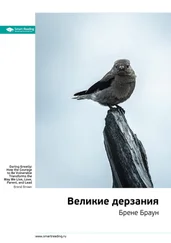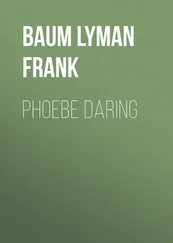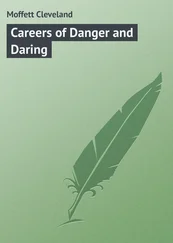From the field of social psychology, influence-and-persuasion researchers, who examine how people are affected by advertising and marketing, conducted a series of studies on vulnerability. They found that the participants who thought they were not susceptible or vulnerable to deceptive advertising were, in fact, the most vulnerable. The researchers’ explanation for this phenomenon says it all: “Far from being an effective shield, the illusion of invulnerability undermines the very response that would have supplied genuine protection.”
One of the most anxiety-provoking experiences of my career was speaking at the TED Conference in Long Beach that I referenced in the Introduction. In addition to all of the normal fears associated with giving a filmed, eighteen-minute talk in front of an intensely successful and high-expectation audience, I was the closing speaker for the entire event. For three days I sat and watched some of the most amazing and provocative talks that I’ve ever seen.
After each talk I slumped a little lower in my chair with the realization that in order for my talk “to work” I’d have to give up trying to do it like everyone else and I’d have to connect with the audience. I desperately wanted to see a talk that I could copy or use as a template, but the talks that resonated the most strongly with me didn’t follow a format, they were just genuine. This meant that I’d have to be me. I’d have to be vulnerable and open. I’d need to walk away from my script and look people in the eye. I’d have to be naked. And, oh, my God … I hate naked. I have recurring nightmares about naked.
When I finally walked onto the stage the first thing I did was make eye contact with several people in the audience. I asked the stage managers to bring up the houselights so I could see people. I needed to feel connected. Simply seeing people as people rather than “the audience” reminded me that the challenges that scare me—like being naked—scare everyone else. I think that’s why empathy can be conveyed without speaking a word—it just takes looking into someone’s eyes and seeing yourself reflected back in an engaged way.
During my talk I asked the audience two questions that reveal so much about the many paradoxes that define vulnerability. First I asked, “How many of you struggle to be vulnerable because you think of vulnerability as weakness?” Hands shot up across the room. Then I asked, “When you watched people on this stage being vulnerable, how many of you thought it was courageous?” Again, hands shot up across the room.
We love seeing raw truth and openness in other people, but we’re afraid to let them see it in us. We’re afraid that our truth isn’t enough—that what we have to offer isn’t enough without the bells and whistles, without editing, and impressing. I was afraid to walk on that stage and show the audience my kitchen-table self—these people were too important, too successful, too famous. My kitchen-table self is too messy, too imperfect, too unpredictable.
Here’s the crux of the struggle:
I want to experience your vulnerability but I don’t want to be vulnerable.
Vulnerability is courage in you and inadequacy in me.
I’m drawn to your vulnerability but repelled by mine.
As I walked on the stage, I focused my thoughts on Steve, who was sitting in the audience, my sisters back in Texas, and some friends who were watching live from TEDActive—an offsite location. I also drew courage from something that I learned at TED—a very unexpected lesson on failure. The vast majority of folks whom Steve and I met during the three days leading up to my talk spoke openly about failing. It wasn’t unusual for someone to tell you about the two or three ventures or inventions that had failed as they explained their work or talked about their passions. I was blown away and inspired.
I took a deep breath and recited my vulnerability prayer as I waited for my turn: Give me the courage to show up and let myself be seen. Then, seconds before I was introduced, I thought about a paperweight on my desk that reads, “What would you attempt to do if you knew you could not fail?” I pushed that question out of my head to make room for a new question. As I walked up to the stage, I literally whispered aloud, “What’s worth doing even if I fail?”
I honestly don’t remember much of what I said, but when it was over I was back knee-deep in the vulnerability hangover AGAIN! Was the risk worth it? Absolutely. I am passionate about my work and I believe in what I’ve learned from my research participants. I believe honest conversations about vulnerability and shame can change the world. Both of the talks are flawed and imperfect, but I walked into the arena and gave it my best shot. The willingness to show up changes us. It makes us a little braver each time. And, I’m not sure how one measures the success or failure of a talk, but the minute I was done I knew that even if it flopped or drew criticism, it had been totally worth doing.
In the song “Hallelujah,” Leonard Cohen writes, “Love is not a victory march, it’s a cold and it’s a broken hallelujah.” Love is a form of vulnerability and if you replace the word love with vulnerability in that line, it’s just as true. From calling a friend who’s experienced a terrible tragedy to starting your own business, from feeling terrified to experiencing liberation, vulnerability is life’s great dare. It’s life asking, “Are you all in? Can you value your own vulnerability as much as you value it in others?” Answering yes to these questions is not weakness: It’s courage beyond measure. It’s daring greatly. And often the result of daring greatly isn’t a victory march as much as it is a quiet sense of freedom mixed with a little battle fatigue.
MYTH #2: “I DON’T DO VULNERABILITY”
When we were children, we used to think that when we were grown up we would no longer be vulnerable. But to grow up is to accept vulnerability. To be alive is to be vulnerable.
—Madeleine L’Engle
The definition and examples that you just read make busting the second vulnerability myth a lot easier. I can’t tell you how many times I’ve heard people say, “Interesting topic, but I don’t do vulnerability.” It’s often buttressed by a gender or professional explanation: “I’m an engineer—we hate vulnerability.” “I’m a lawyer—we eat vulnerability for breakfast.” “Guys don’t do vulnerability.” Trust me, I get it. I’m not a guy or an engineer or a lawyer, but I’ve spoken these exact words a hundred times. Unfortunately, there is no “get out of vulnerability free” card. We can’t opt out of the uncertainty, risk, and emotional exposure that’s woven through our daily experiences. Life is vulnerable.
Look back at the list of examples. These are the challenges of being alive, of being in a relationship, of being connected. Even if we choose to stay out of relationships and opt for disconnection as a form of protection, we’re still alive and that means vulnerability happens. When we operate from the belief that we “don’t do vulnerability” it’s extremely helpful to ask ourselves the following questions. If we truly don’t know the answers, we can bravely ask someone with whom we are close—they’ll probably have an answer (even if we don’t want to hear it):
“What do I do when I feel emotionally exposed?”
“How do I behave when I’m feeling very uncomfortable and uncertain?”
“How willing am I to take emotional risks?”
Before I started doing this work, my honest answers would have been:
Scared, angry, judgmental, controlling, perfecting, manufacturing certainty.
Scared, angry, judgmental, controlling, perfecting, manufacturing certainty.
Читать дальше
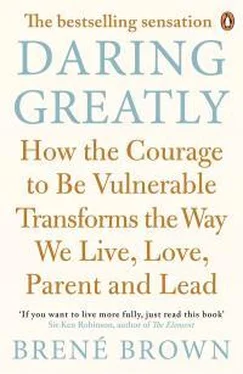


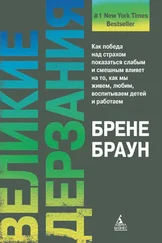


![Брене Браун - Вопреки. Как оставаться собой, когда всё против тебя [litres]](/books/436389/brene-braun-vopreki-kak-ostavatsya-soboj-kogda-v-thumb.webp)
